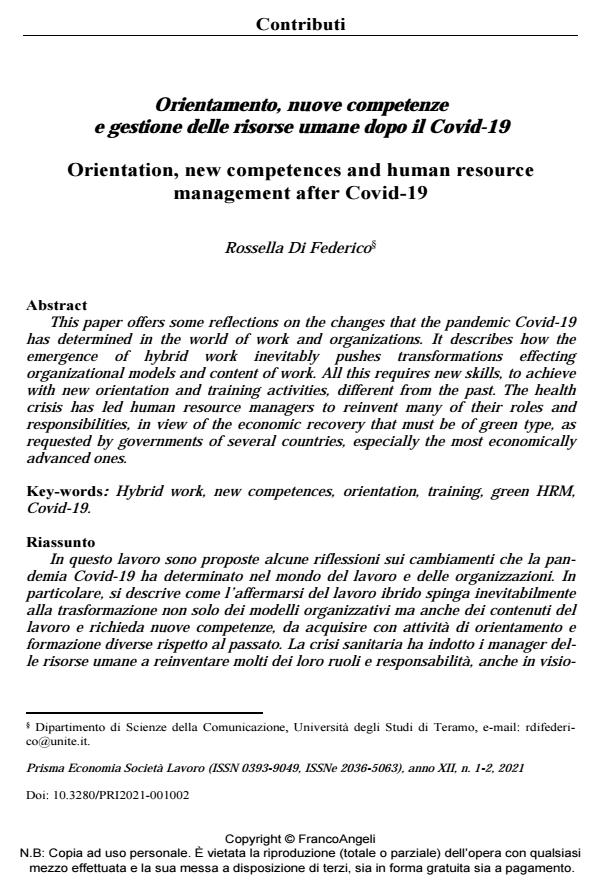Orientation, new competences and human resource management after Covid-19
Journal title PRISMA Economia - Società - Lavoro
Author/s Rossella Di Federico
Publishing Year 2023 Issue 2021/1-2
Language Italian Pages 13 P. 11-23 File size 361 KB
DOI 10.3280/PRI2021-001002
DOI is like a bar code for intellectual property: to have more infomation
click here
Below, you can see the article first page
If you want to buy this article in PDF format, you can do it, following the instructions to buy download credits

FrancoAngeli is member of Publishers International Linking Association, Inc (PILA), a not-for-profit association which run the CrossRef service enabling links to and from online scholarly content.
This paper offers some reflections on the changes that the pandemic Covid-19 has determined in the world of work and organizations. It describes how the emergence of hybrid work inevitably pushes transformations effecting organizational models and content of work. All this requires new skills, to achieve with new orientation and training activities, different from the past. The health crisis has led human resource managers to reinvent many of their roles and responsibilities, in view of the economic recovery that must be of green type, as requested by governments of several countries, especially the most economically advanced ones.
Keywords: Hybrid work, new competences, orientation, training, green HRM, Covid-19.
Rossella Di Federico, Orientamento, nuove competenze e gestione delle risorse umane dopo il Covid-19 in "PRISMA Economia - Società - Lavoro" 1-2/2021, pp 11-23, DOI: 10.3280/PRI2021-001002